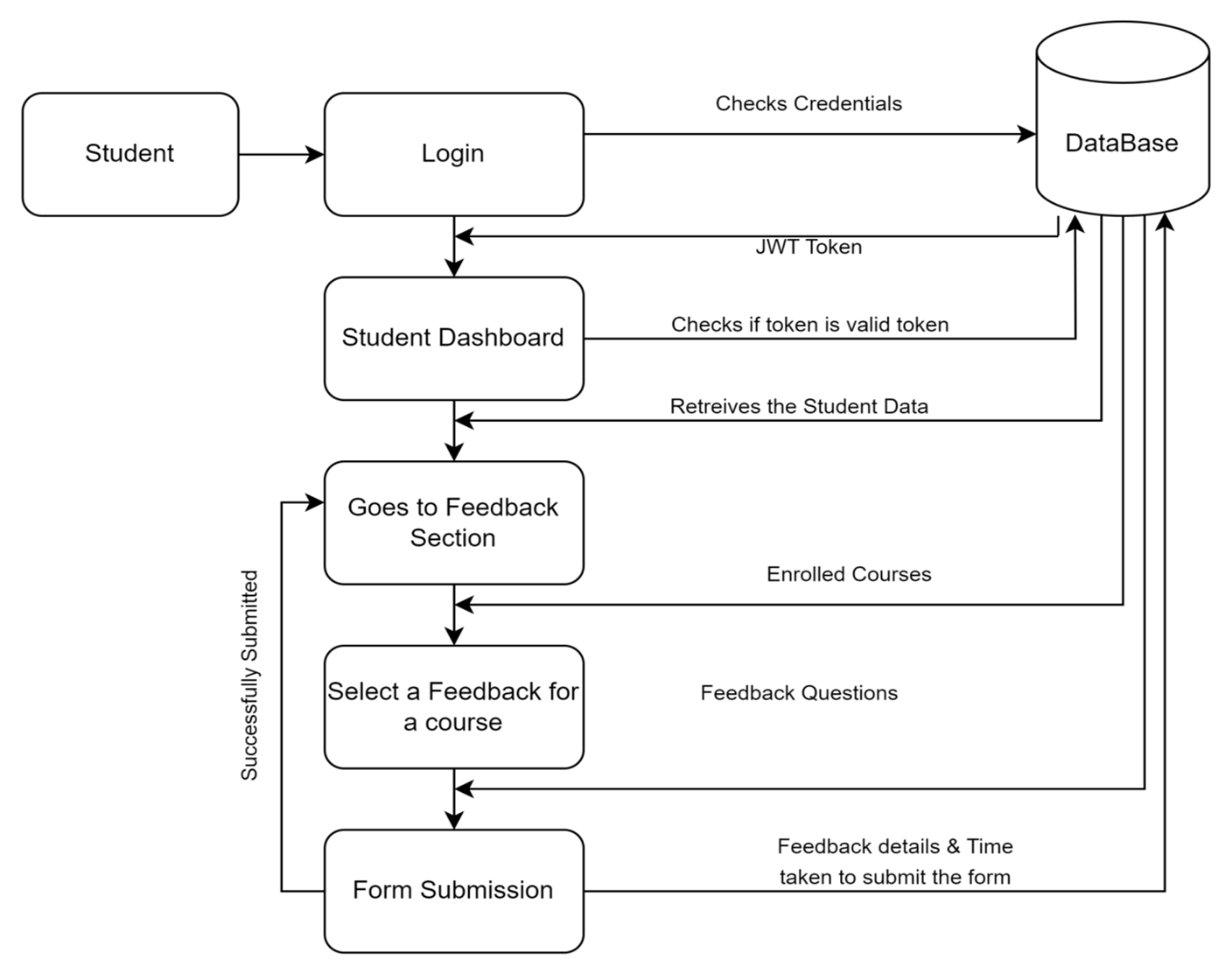The faculties from the Department of Computer Scinece and Engineering, Dr Sasmita Rout, Dr Hema Kumar Yarnagula, and Dr Debabrata Senapati, along with their students and scholars, Mr Muthyala Sai Venkat, Mr Mukku Suhas, Mr Seelam Avinash Reddy, and Mr PV Manikanteswara Rao Baddi, introduce an innovative system that gathers student feedback on their learning experiences through questionnaires. By refining this feedback using specific metrics, the system delivers a more accurate assessment of faculty performance, ultimately enhancing teaching methods and creating a more engaging educational environment for students.
Brief Abstract of the Research
In the realm of higher education, student feedback is crucial and offers invaluable insights into the effectiveness of teaching methods. In addition, it helps faculty members by illuminating how their instructional practices affect student learning outcomes. The student feedback in academic settings empowers educators to adapt and refine their teaching strategies by identifying strengths and areas for improvement. Thus, ultimately creates a more engaging and impactful learning experience for the students. This article introduces a next-generation weighted student feedback system that collects responses using a set of questionnaires, referred to as the Conventional Feedback Score (CFS), from students about their learning experience and course effectiveness. The proposed system then refines the students’ responses based on three key metrics to provide a more accurate, balanced, and reliable assessment of the faculty performance. Our experimental results show that the proposed weighted feedback system provides a more accurate, reliable, and robust feedback score compared to CFS.
Explanation in Layperson’s Terms
The proposed feedback system is designed for use in academic settings such as colleges, universities, and online learning platforms seeking honest student evaluations. Any higher educational institution that prioritises quality teaching and fair assessments can benefit from the proposed system. Its key advantage lies in enhancing feedback reliability by minimising incorrect or irrelevant responses.
Practical Implementation and Social Implications associated with the Research
Any higher educational institution with an intent to prioritise quality teaching and fair assessments can benefit from the proposed system. Its key advantage lies in enhancing feedback reliability by minimising incorrect or irrelevant responses. This allows the institute administrators to make more informed decisions regarding faculty performance and instructional improvements. The system integrates easily with existing feedback mechanisms, enabling quick and efficient adoption. Primarily, this invention serves academic institutions aiming to collect accurate and fair student feedback for faculty evaluation.
Collaborations
In-house work with collaborations from IIT Guwahati and IIT Kharagpur
Future Research Plans
Plan to expanding the research and tackle challenges in areas such as real-time scheduling, embedded systems, and cyber-physical systems, with the aim of developing innovative solutions that address critical issues in these domains.


